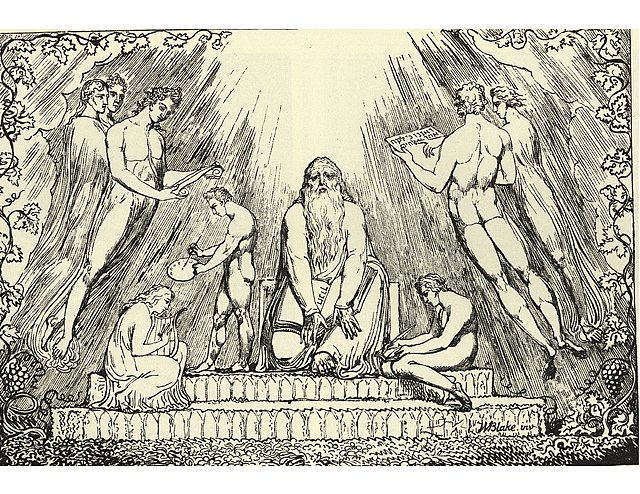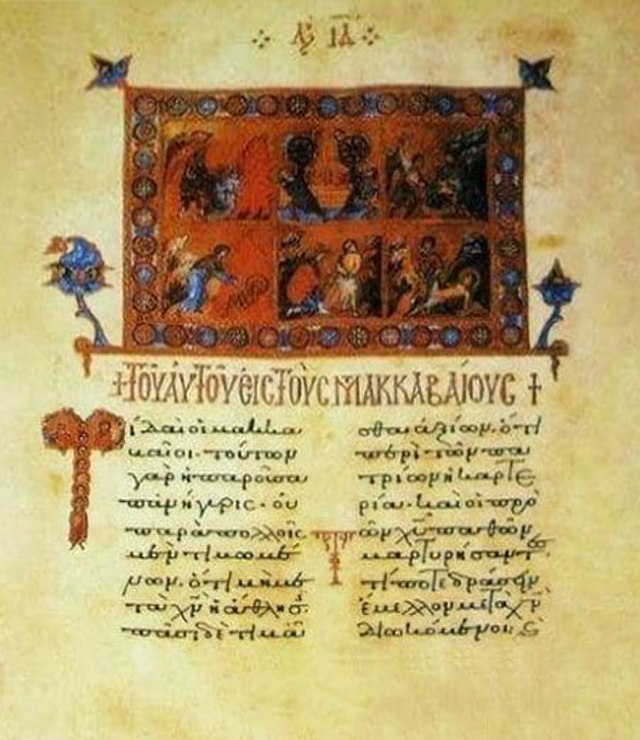Introduction
The Book of Enoch, often referred to as 1 Enoch, is an ancient Jewish religious work that, although not included in the canonical biblical books, has played a significant role in shaping interpretations of the Bible. Its probable origins, prevalence during the Second Temple Period, references in the New Testament, and ongoing debates about its canonicity provide a fascinating glimpse into its significance.
Origins of 1 Enoch
1 Enoch is considered pseudepigraphical, a term that denotes works falsely attributed to notable figures from the past. Despite Enoch’s name being attached to it, scholars generally agree that the book is the product of various authors and editors who compiled it over several centuries, possibly from the 3rd century BCE to the 1st century CE.
This timeframe, encompassing centuries of Jewish history and thought, implies that 1 Enoch reflects a diverse range of Jewish religious ideas and perspectives from this crucial period, making it an invaluable resource for understanding the context in which the New Testament emerged.
Prevalence During the Second Temple Period
The Second Temple period (516 BCE – 70 CE) was a time of considerable religious development and change within Judaism. 1 Enoch, composed during this period, was widely read and respected. This is evidenced by the numerous copies found among the Dead Sea Scrolls and references to Enochian traditions in other Jewish texts from the period.
References to 1 Enoch in the Bible
While 1 Enoch is not part of the canonical Jewish or Protestant scriptures, its influence on biblical writers is undeniable. The most direct reference to 1 Enoch is found in the New Testament’s Epistle of Jude (Jude 1:14-15), where Jude directly quotes from 1 Enoch 1:9. This indicates that 1 Enoch was known and valued by early Christian communities.
The Debate Over Its Canonicity
The canonicity of 1 Enoch is a complex issue. While it is excluded from the Jewish biblical canon and the Protestant Bible, sections of 1 Enoch are included in the canon of the Ethiopian Orthodox Church. The inclusion of a direct quotation from 1 Enoch in the New Testament has further fuelled debates about its canonical status.
However, whether or not 1 Enoch is considered canonical, it’s crucial to understand that this does not diminish its importance. Its absence from the canon doesn’t imply insignificance; it simply means that it is not considered divinely inspired scripture in certain religious traditions.
1 Enoch’s Significance for Biblical Interpretation
Regardless of the debates surrounding its canonicity, 1 Enoch remains a valuable resource for biblical interpretation. It provides crucial insights into the socio-religious environment of the Second Temple Period, the apocalyptic genre, angelology, demonology, and eschatology. Understanding these concepts can greatly enhance one’s interpretation of related themes within the canonical Bible.
Conclusion
The importance of 1 Enoch lies not in its status as a canonical or non-canonical text, but in the unique historical and cultural insights it offers. These insights can help to illuminate our understanding of many biblical themes and ideas, underscoring the importance of such works in biblical studies. Whether or not one regards it as divinely inspired, there’s no denying that 1 Enoch has an important role in shaping our comprehension of the Bible and its context.
Discussion Questions:
- How does the historical and cultural context provided by 1 Enoch enhance our understanding of the biblical themes prevalent during the Second Temple Period?
- Considering the quotation from 1 Enoch in the Book of Jude, how should we approach non-canonical texts when studying the Bible?
- How does the diverse authorship and long compilation period of 1 Enoch influence its interpretation and application in understanding biblical concepts?
Want to Know More?
- “The Book of Enoch, Prophet” by R.H. Charles: This is a comprehensive translation and commentary of 1 Enoch that provides detailed insights into its context and content.
- “Reversing Hermon: Enoch, the Watchers, and the Forgotten Mission of Jesus Christ” by Dr. Michael S. Heiser: In this book, Dr. Heiser explores the impact of the story of the Watchers from 1 Enoch on New Testament theology.
- “Enoch and the Mosaic Torah: The Evidence of Jubilees” by Gabriele Boccaccini and Giovanni Ibba: This book offers an analysis of the influence of Enochic traditions on the Pentateuch and other biblical texts.




